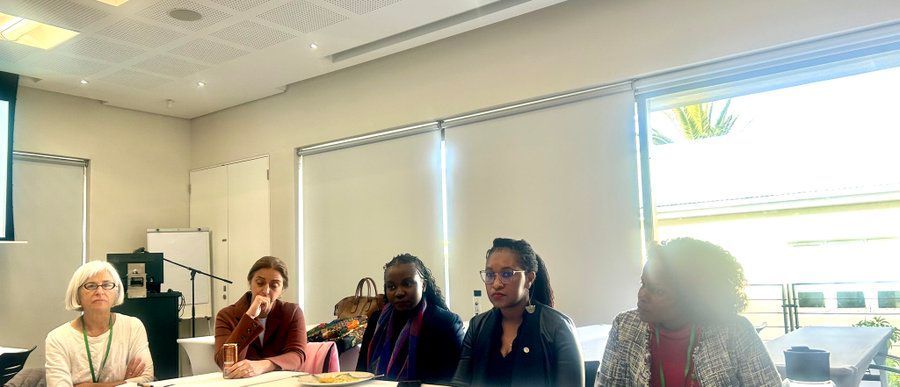Gender aware tax policies have greater development dividends
ATAF took part in the International Association for Feminist Economists (IAFFE) in Cape Town where gender aware tax policies were discussed.

FILE Picture: Improving gender equality contributes to a stronger, more resilient and sustainable economy for development.
PRETORIA - Supporting gender equality and empowerment, gender aware tax policies, and the development of women in leadership will not only contribute to broader societal change and help achieve the targets set for Sustainable Development Goal Five (SDG 5) but also enable countries to mobilise domestic resources for development.
This was the view of ATAF Head of Strategic Planning and international Cooperation Varsha Singh who was speaking on “Shifting the narrative; reforming tax systems to achieve gender equal economies and the SDGs” at the International Association for Feminist Economists (IAFFE) in Cape Town South Africa in July 2023.
This year’s conference was held under the theme Envisioning Feminist Economics Strategies for an Equitable and Sustainable World. It recognised the contributions that feminist economists have made to developing and advancing understanding of alternative economic frameworks and strategies that are aimed at reducing inequalities within and between countries, achieving gender and social justice and environmental sustainability.
“Tax administrations can consider several entry points to make changes to gender-responsive tax systems,” said Singh. These included data collection and analysis; gender mainstreaming in policy design; reviewing tax exemption and deductions; promoting women’s economic empowerment; strengthening tax compliance and administration; and, collaborating with stakeholders for a more inclusive and comprehensive approach.
“Collecting gender-disaggregated data can provide insights into the gendered impact of tax policies and identify areas that require attention. By analysing this data, tax administrations can assess the existing gender biases within the tax system and identify opportunities for improvement,” said Singh, noting that ATAF has started collecting this data from its 42 Member countries.
In terms of policy work, Singh said ATAF’s desk research on 16 countries indicated there were gender dispraise in the tax policies which led to biases. By integrating gender considerations Ito the design and evaluation of tax policies, tax administrations can ensure these are more equitable and inclusive.
She added that tax administrations could address gender-specific barriers to tax compliance and administration by, for example, simplifying tax processes, providing gender-responsive guidance and assistance, and offering flexibility in compliance requirements can help reduce the burden on women, especially those with caregiving responsibilities or limited access to resources.
“Technology and digitalisation can play a significant role in improving the tax administration's ability to promote gender equality,” said Singh.
There were, however, risks that needed to be mitigated. These risks included gender bias in technology.
“Developers, processes, data or even implementors of a tool may hold internal biases that will then be reflected in, for instance, an AI tool that may lead to unfair outcomes. It is important to analyze a process or product from a gender lens and integrate gender equality considerations into the development of tech solutions. Consistent monitoring and review will also be key,” said Singh.
Other risks include gender data gaps; lack of access and connectivity in ensuring; limited digital literacy and skills; and, data privacy and security.
Focusing on tax policies offered a significant opportunity for progress.
“Tax policies can contribute to greater gender equality by addressing the systemic biases and discrimination women face in our society,” said Singh.
ATAF, through the ATAF Women in Tax Network (AWITN) is engaging stakeholders to ultimately create gender-equal environments where every single member of society, irrespective of the social labels attached to them, can thrive and enjoy a decent quality of life.
“In this way, we will not only advance the goals of SDG5 and empower women on tax and gender but we will enable countries to mobilise domestic resources which will enable the development of states thus leading to better infrastructure, health, education and other support systems,” said Singh.
For more information on the AWITN, go to https://womenintax.org/.










